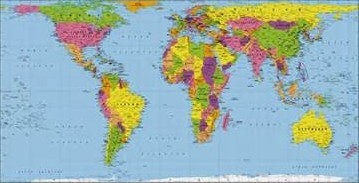Hilarious Giving
QUOFLECTIONS™
ON SPIRITUALITY AND ETHICS
“God loves a cheerful giver”
Apostle Paul (2 Cor. 9:7)
Silvia’s pink headscarf stands in contrast to her lavender blouse and white and brown skirt. Silvia lives in Uganda, where the average annual income is $1500. She helps support her family with a small food stall by selling cabbages, onions, tomatoes and cassava, a tuberous root from which tapioca is made.
Silvia and her husband pay school fees for four of their five children. While the family has electricity, sadly, they have no access to piped water in the home they rent. She wants to expand her business to improve the family’s finances—but how?
The answer is simple. Silvia applies for a ‘microloan’ of $175. Anyone from around the world can contribute $25 or more so she obtains the funds she needs. Lenders stepped up: she received the funds last September. As planned, Silvia repaid the loan in just six months.
Expanding her business also helped her community have access to reasonably priced food.
This win/win for Silvia’s family and community is also a win for those who made the funds available to Silvia. Many such opportunities are available to make a huge difference in the lives of those in need.
Eight years ago, I discovered Kiva.org, an organization which carefully oversees the gathering and dispensing of small loans to people like Silvia. Kiva gives lenders the choice of making microloans in any of 85 countries for food, retail sales, housing, transportation and a variety of services.
This lending to the needy has a long tradition: Centuries before Jesus, several biblical writers encouraged lending to the poor without interest. This gives destitute workers better prospects than dying prematurely or barely surviving.
With Kiva, return of funds is almost guaranteed. There is a small risk: On average, 98.7 percent of all funds loaned are repaid. But the occasional paltry loss, in my view, is a small sacrifice for the opportunity to significantly improve people’s lives.
Consider Gregorio, a 35-year-old Peruvian father, working hard to support his family, who borrowed $700 for his taxi cab business. Or Cristine, a young mother of two from the Philippines who repaid six loans and is, once again, expanding her general store. Or the Arcoiris Group of ten adults in Guatemala borrowing $3,125 to buy domestic animals.
What can we do to make the earth a better place for our having been here? This is a question I first seriously considered when I was nineteen. Now 63, I think about this with more urgency.
Perhaps you, too, have thought much about your impact on this world. There are many aspects to reflect upon: From relationships with family and friends to contributions of time and money to community, nation and world.
I’m reminded of the wise advice of John Wesley: “Do all the good you can. By all the means you can. In all the ways you can. In all the places you can. At all the times you can. To all the people you can. As long as ever you can.”
Especially as we grow older, we may be able to accumulate money that, in today’s economy, the stock market or bank may increase little, if any. We may enhance corporate profits—and perhaps at some risk.
What if in the years ahead we invest instead in people with small businesses such as Silvia, Gregorio and Cristine? Rather than gaining a pittance on the dollar, we could have a legacy of actually making the lives of many people much better.
The Apostle Paul wrote, “God loves a cheerful giver.” I think the translation of the Greek word, hilaros, as “cheerful” is too mild. I like to think of givers as, indeed, able to experience hilarity. What a great gift of gladness we receive from God when we share our gifts with others.
If interested, check out the website. Much joy may await you at Kiva.org.
Rev. Harry Rix has 40 articles on spirituality and ethics and 1000 quotations for reflection available at www.quoflections.org. ©2015 Harry Rix. All rights reserved.
Related Articles
Enlarging Our Radius of Concern
Loving Our Neighbors as Ourselves
Should We Separate Politics and Religion?
Entering the World of the Child
Luke’s Call for Compassion
Rethinking Cronyism

